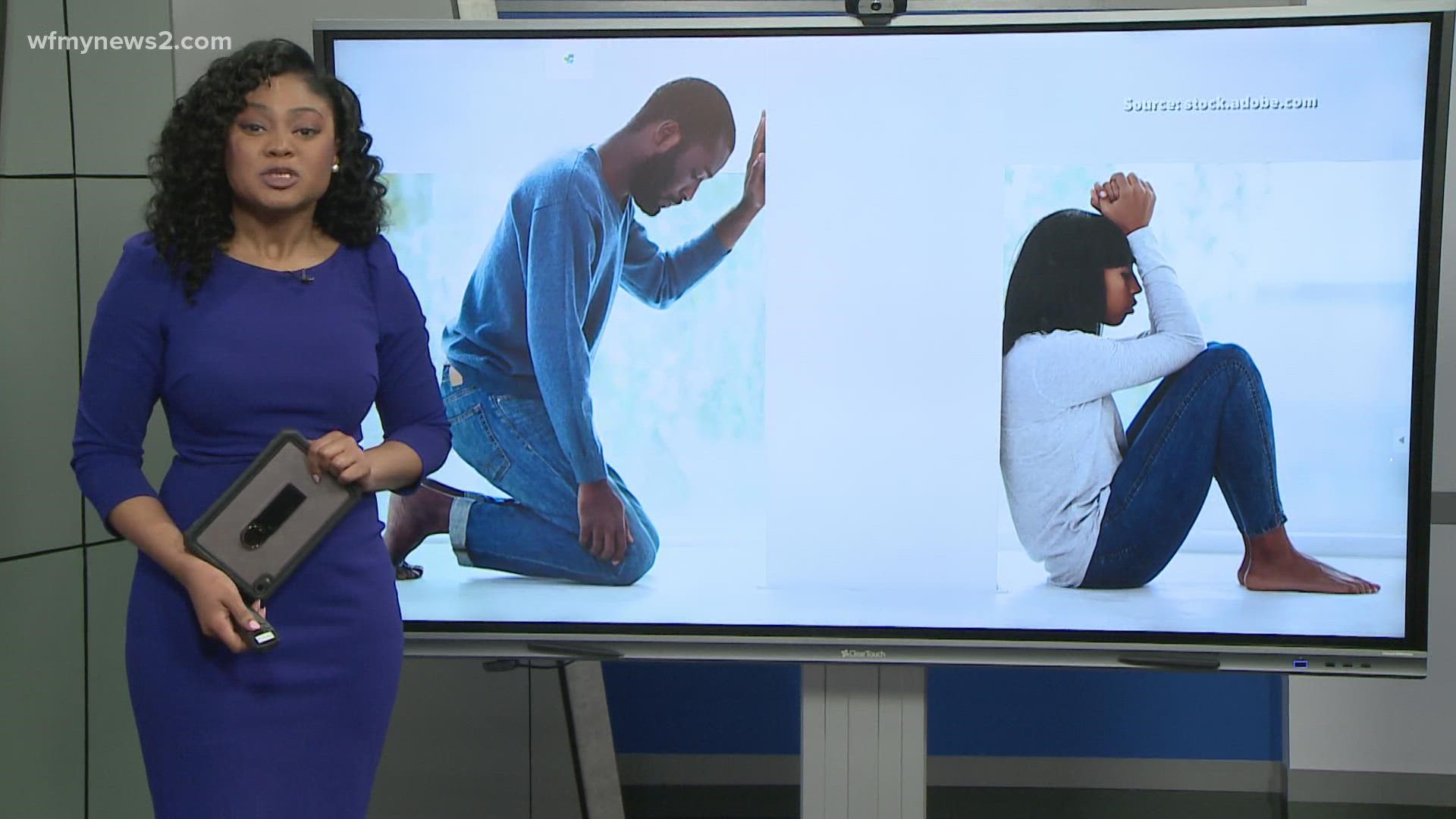GREENSBORO, N.C. — Relationships with family, friends, co-workers make a difference in our lives. When we have healthy relationships, then we’re happier. But, we know that not all relationships are healthy, nor do they last. Sometimes, a family member or friend walks away. They call it quits. And it hurts. Sometimes, the person who left returns. How do you handle that? Should you let them back in your life?
There might be a particular person that you wish was still a part of your life. They were important to you. If you two parted ways on unfriendly terms or have unfinished business, it wouldn’t be wise to pick up where you two left off. There are questions to explore and emotions to deal with. You should ask yourself why? Why do you want this person back in your life? Is it possible for you two to have a healthy connection, communication, and relationship/friendship? How long did it take you to get over the initial pain of them leaving? What would they add to your life now? What would be different? You have to ask yourself hard questions and give objective answers.
As exciting as it can be to have a person you’ve missed and still care about come back into your life, there are important things to consider before making the decision. Find out more about their reasons for why they left and in the manner they left. Ask them why now? Why are they back in your life? What is it about this time that they chose to come back? What’s currently going on in their life? You ask hard questions because you want to uncover their true intentions. Do they really miss you? Or, do they need or want something from you? Or, are they unsure?
When they answer your questions, you want to pay close attention to their body language. You want to see consistency in their body language and their words. The consistency is like a truth barometer. You can have more confidence that they’re leveling with you. For example, if they say they’re sad, they should show body language reflecting sadness. If they say that they’re looking forward to reconnecting, what in their body language shows excitement or happiness? Consistency is the key. Also, pay attention to their voice. Listen to the voice fluctuations. What words are they stressing? Listen for hesitations and start-stops in what they’re saying.
Tell them sensitively and assertively if you decide that you don’t want to give them a second chance. Here’s an example to get you going, “Wow, I didn’t expect that you’d ever come back. I’ve thought about what you said and your reasons. I don’t want to start a relationship again. Or, I don’t want to give it a second try. I appreciate you telling me what was happening with you. I’m just not there.” The end. Don’t draw out the conversation or justify what you’re decision. Your decision is your decision and needs to be respected. And think about this. If they argue about your decision, what does that tell you?
Don’t give them false hope like, “Maybe in the future, just not now.” You might say something like this to end your uncomfortableness. This is where you have to be an adult and take responsibility for your decisions.
Now, we want to move in a different direction. What if your the friend or family member who’s seen the heartache and given support. And now, your friend or family member is going back to the person who hurt them, and you disagree with their decision. What do you do?
When you love and care about someone, you don’t want them to hurt. You want them to be happy. Part of happiness is being with someone who cares about them. If you think that your friend or family member is making the wrong choice, you’re inclined to get involved because you don’t want them to get hurt again.
The more passionate you feel about the situation and their decision, the more passionate your comments. Before you say anything, make sure you temper your emotions and get the facts. If you choose to say something, come from a place of love and compassion. When you do, your tone and words should reflect that, which is what is needed. Remember that people don’t like being told that they’re wrong. Knowing this, you’ll get further if you ask questions that lead them to what you want them to think about. For example, instead of saying something like, “You know how they are. They haven’t changed. They are going to hurt you again.” Ask questions that lead them to your point. If you don’t think that person has changed or can change, ask, “What will be different this time?” “How will you know that they’ve really changed?” “What does that look like?” “And, how will you feel?”
Try not to take it personally if your friend or family member shuts you out, doesn’t talk to you about their decision, or tells you to butt out. Keep in mind that when people don’t get the support they want, they shut down. It’s a natural response. Find comfort in what you tried. You made a valiant attempt to help them. If you pray, then say a prayer that they’re making the right choice.
Share your thoughts on my Facebook page: Blanca Cobb – Body Language Expert. Write a message on my timeline, and I’ll get back to you. While you’re on my page, I’d appreciate it if you give my page a “like.”


